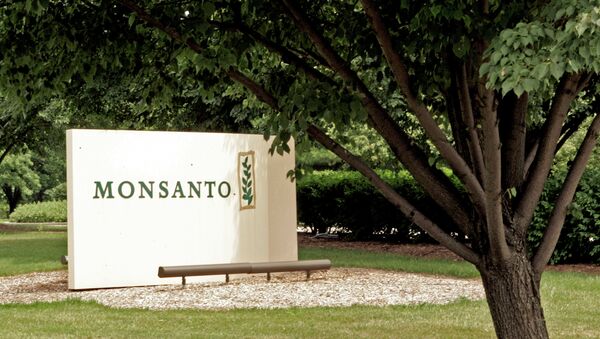Monsanto has been targeting Syngenta with a proposal for what's known as a "corporate inversion" or a "tax inversion." It's a move widely associated with aggressive moves to pay lower taxes, though sources close to Monsanto told the Guardian that was not their primary motive.
On Monday Syngenta rejected a $45 million revised bid from Monsanto. The US company sweetened a previous offer with a $489.84 per share price for Syngenta holders (which Monsanto said was a 43% premium on current prices) and a $2 billion "reverse breakup" fee — to be paid to Syngenta in case regulatory obstacles prevent the takeover from going through.
"A new parent company, domiciled in the UK, would demonstrate that our merger will create a new global enterprise … [and] provide additional synergies," wrote Monsanto chief executive, Hugh Grant in documents about negotiations released by Syngenta. "We would also propose a new name for the combined company to reflect its unique global nature."
Of the latest offer to join Monsanto as a 'global enterprise' Syngenta said that it included "the same inadequate price, same inadequate regulatory undertakings to close, same regulatory risks." The company has expressed concerns that anti-trust regulations would doom the enterprise as a threat to competition.
The UK has become an increasingly attractive destination for corporations since Chancellor of the Exchequer, George Osborne cut the the headline corporation tax rate to 20% and established generous tax regulations for the subsidiaries of UK-based corporations.
— Bloomberg VisualData (@BBGVisualData) April 15, 2015
Last year, the wave of "inversion" deals - the the UK and elsewhere — prompted a response by the US government, with President Barack Obama calling the practice "unpatriotic," a laying out proposals to make it more difficult, such as requiring 50 percent control of a company to shift abroad instead of the current 20 percent.
Monsanto feels its proposal does not fall under current restrictions, and has said it would sell off overlapping seed and chemical units to avoid anti-trust actions.
After a series of meeting with Monsanto, however, Syngenta has said they do not have the same optimism about the regulatory environment.
"These meetings have reinforced Syngenta’s assessment of the regulatory risks and Monsanto has made no attempt to seriously address these concerns," the Swiss company said. "Monsanto continues to gloss over these fundamental transaction risks."
The US government response to the tax inversion trend came shortly after Burger King revealed plans to merge with Canadian chain Tim Hortons and move its headquarters north of the border, where tax rates are significantly lower.
Other big tax inversion deals have been pursued recently, especially in the medical and pharmaceutical field. US-based Pfizer went after the UK's AstraZeneca, but the deal never went through. And American company AbbVie also tried a takeover of Ireland's Shire, but withdrew the bid after the new rules were introduced by the Obama administration.
If the St. Louis, Missouri-based Monsanto shifts its headquarters overseas, it could potentially cut its tax bill by $500 million a year, according to Bloomberg.






